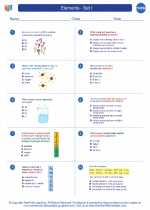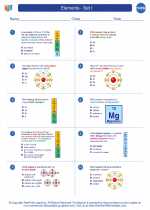Aerosol
Definition
An aerosol is a colloidal suspension of fine solid particles or liquid droplets in a gas.
Formation
Aerosols can be formed through various processes such as:
- Dispersion: Breaking up of a liquid into small droplets, e.g., spraying a liquid into the air.
- Condensation: Conversion of a gas into fine particles, e.g., formation of clouds and fog.
- Mechanical processes: Grinding, crushing, or attrition of solid particles into fine aerosols.
Types of Aerosols
There are two main types of aerosols:
- Suspensions: Solid particles dispersed in a gas, e.g., dust particles in the air.
- Emulsions: Liquid droplets dispersed in a gas, e.g., mist or fog.
Applications
Aerosols have various applications in industries, consumer products, and environmental processes. Some common applications include:
- Spray cans: Aerosol sprays for household products, paints, and cosmetics.
- Medicine: Inhalers and nebulizers used for respiratory treatments.
- Environmental processes: Formation of clouds, fog, and atmospheric aerosols affecting climate.
Environmental Impact
Aerosols can have both positive and negative impacts on the environment and human health. They can contribute to air pollution, affect climate through scattering and absorption of sunlight, and influence regional and global weather patterns.
Study Guide
To understand aerosols better, it's important to focus on the following key points:
- Definition and characteristics of aerosols.
- Formation processes of aerosols.
- Distinguishing between different types of aerosols (suspensions and emulsions).
- Real-world applications of aerosols in various industries.
- Environmental impact and implications of aerosols on air quality, climate, and human health.
◂Chemistry Worksheets and Study Guides High School. Elements - Set I
Worksheet/Answer key Elements - Set I
Elements - Set I  Worksheet/Answer key
Worksheet/Answer key Elements - Set I
Elements - Set I  Worksheet/Answer key
Worksheet/Answer key Elements - Set I
Elements - Set I 

 Worksheet/Answer key
Worksheet/Answer key
 Worksheet/Answer key
Worksheet/Answer key

The resources above cover the following skills:
PHYSICAL SCIENCE (NGSS)
Matter and Its Interactions
Students who demonstrate understanding can:
Use the periodic table as a model to predict the relative properties of elements based on the patterns of electrons in the outermost energy level of atoms.
Plan and conduct an investigation to gather evidence to compare the structure of substances at the bulk scale to infer the strength of electrical forces between particles.